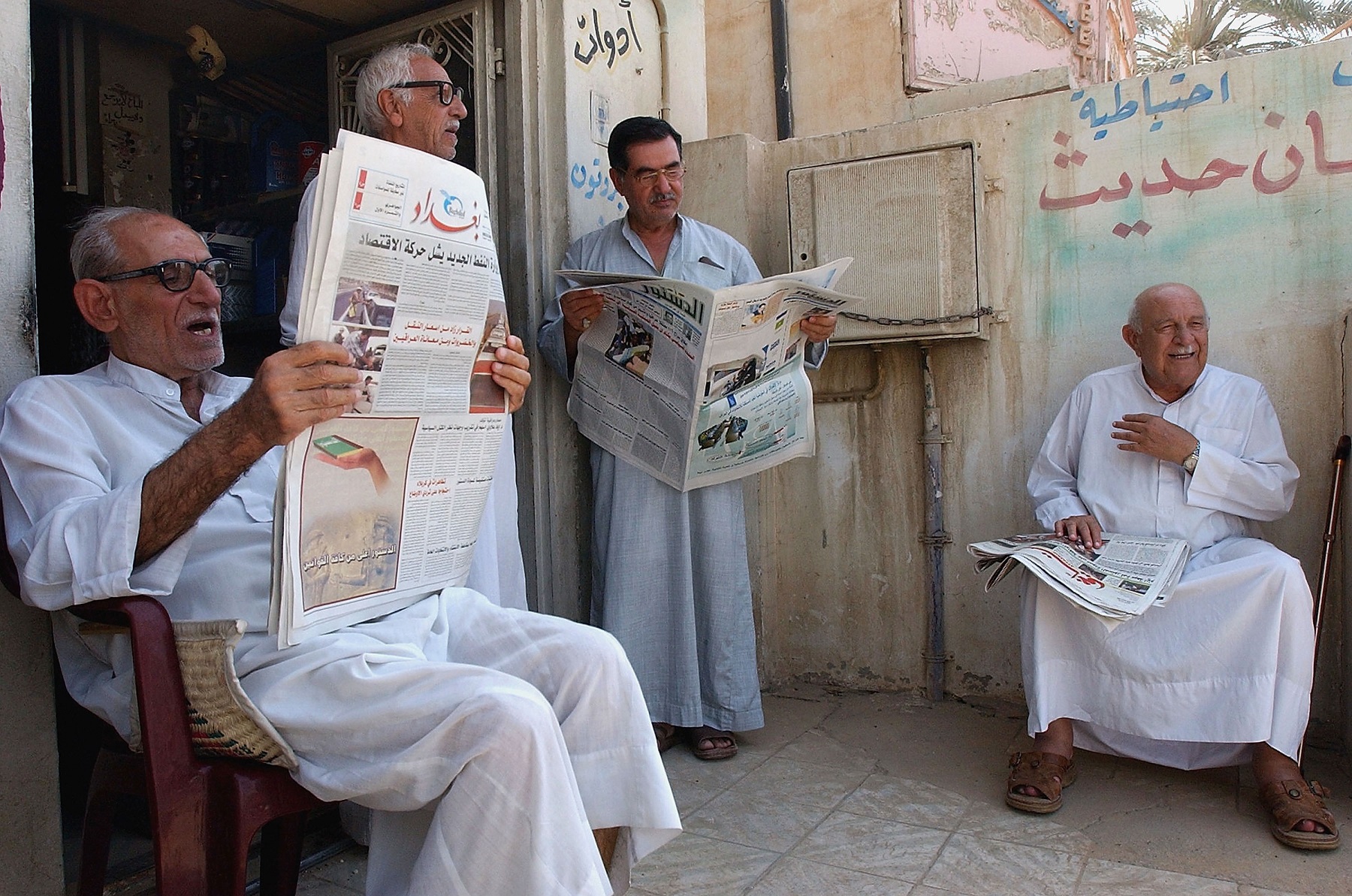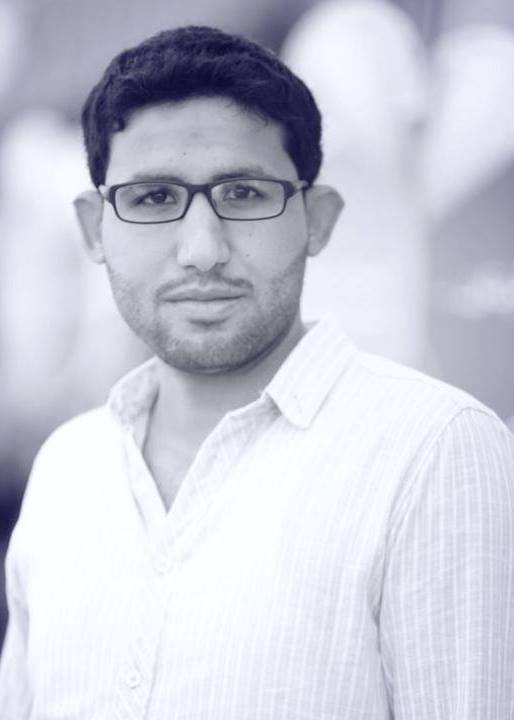تتساقط الصحف العراقية واحدة تلو الأخرى، مرة لعدم توفّر التمويل، ومرة لعدم مجاراتها للصحافة الرقمية، والأسباب تتنوع بين ضعف الإدارة وتراجع المحتوى والعجز عن التسويق والترويج.
يحتفل الصحفيون العراقيون بعيدهم في 15 يونيو/حزيران من كل عام، ويتزامن هذا العيد مع الذكرى 150 لتأسيس "الزوراء" -أول صحيفة عراقية- على يد الحاكم العثماني مدحت باشا (1) التي واصلت الصدور لـ 48 عامًا، وأغلقت يوم 11 مارس/آذار 1917، قبل أن تعاود نقابة الصحفيين العراقيين إصدارها صيف العام 2012.
مرّت الصحافة العراقية بتحديات عديدة، إذ لا يمتلك العراق صحفًا واصلت الصدور لأكثر من 50 عامًا، نتيجة تغيير الأنظمة السياسية بالانقلابات العسكرية أو الاحتلال، فكل حقبة في العراق كانت تلغي التي سبقتها.
قبل العام 2003، كان عدد الصحف اليومية والأسبوعية 9 صحف، لكنها جميعا توقفت بعد سقوط نظام صدام حسين. ومع نشوء النظام السياسي الحالي، تولدت فوضى كبيرة في إصدار الصحف، إذ بلغ عددها 171 صحيفة يومية وأسبوعية، ليعاود العدد الانحسار إلى 21 صحيفة.
تتعرّض المؤسسات الصحفية والعاملون فيها بين فترة وأخرى إلى الاعتداء والتضييق من قبل الجماعات المسلحة المنتشرة في البلاد، إذ في يوم واحد تعرضت أربع صحف إلى تفجير مقراتها وحرق معداتها وأرشيفها نتيجة انتقادها لرجل دين، كما اغتيل عدد من الصحفيين نتيجة كشفهم ملفات فساد لجهات سياسية حاكمة منذ العام 2003.
مشاكل كبيرة تواجه الصحافة الورقية العراقية اليوم، أهمها تراجع المبيعات بعد هروب قرائها نتيجة ضعف المحتوى والكوادر العاملة فيها، وعدم ابتكارها أساليب جديدة في التغطية الصحفية، إذ تتشابه الصحف في المحتوى المقدم لجمهورها، لأنها تتغذى على الوكالات المحلية والدولية نظرا لقلة الموارد البشرية، حتى إن بعضها لا يديرها سوى ثلاثة أو أربعة أشخاص فقط.
الكثير من هذه الصحف لم تواكب التطور التكنولوجي، فلم تحدّث موقعها الإلكتروني، أو تفعّل صفحتها على مواقع التواصل الاجتماعي، وكان ذلك سببًا في هروب المعلنين.
في العراق قرابة 39 مليون شخص، غالبيتهم من الشباب، لكن الصحف هناك تطبع الآن 30 ألف نسخة يوميًّا، جلّها يُرسل على شكل اشتراكات إلى المؤسسات الحكومية والخاصة، وجزء بسيط لا يتجاوز العُشر، يباع للقراء وهم من كبار السن المواظبين على القراءة لاعتيادهم على ذلك منذ شبابهم. وتحتجب الصحف عن الصدور في العطل الرسمية والأعياد والمناسبات الدينية الكبيرة، مما يجعل نطاق انتشارها محليًّا، إذ لا تُوزع في الدول العربية، مما جعل المنافسة تغيب مع نظيراتها العربية لشروط عدة، منها عدم امتلاكها مراسلين في الدول العربية والأجنبية وضعف المواد المحررة وطبعتها الورقية.
من جهة أخرى، لم تخلق الصحافة المطبوعة علاقة متينة مع القارئ، فهي تفتقر إلى التوزيع السليم، وعلى المواطن قطع مسافات طويلة إذا ما أراد شراء صحيفته. كما أن غالبية مواقعها الإلكترونية ما زالت بدائية ولم تخلق تفاعلا مع القارئ، بالإضافة إلى أنها تواجه مشاكل كبيرة في التصفح، مما يجعل المواطن يفضّل مطالعة الأخبار في المواقع العربية.
بحسب شركة "مستقبل العراق" المسؤولة عن التوزيع، فإن الصحف العراقية كانت قبل 16 عامًا تطبع أكثر من 500 ألف نسخة يوميًّا، لكن الرقم تراجع اليوم إلى 30 ألفا فقط، نتيجة هروب القارئ من الصحف إلى مواقع التواصل الاجتماعي.
"مجلة الصحافة" التقت مسؤول التسويق في الشركة محمد الربيعي الذي يمارس هذه الوظيفة منذ 20 عامًا، لشرح سوق الصحافة المطبوعة والمشاكل التي تواجهها، فقال إنّ سوق الصحافة المطبوعة في تراجع مخيف جدًّا يتمثل في قلة المبيعات"، مشيرًا إلى أنه "في الأعوام الأولى من الاحتلال الأميركي بلغ عدد الصحف 171 صحيفة يومية وأسبوعية، وكانت تطبع يوميا 500 ألف نسخة حتى العام 2008".
يتحسر الربيعي على حال الصحف قائلا إن "عددها بدأ يتناقص بعد العام 2008 ليصبح 43 صحيفة عام 2010 مع تقلص الأعداد المطبوعة يوميا إلى 180 ألف نسخة"، لافتا إلى أن "مجموع الصحف حاليًّا يبلغ 21 صحيفة منها 14 يومية والباقي أسبوعية، تمثل أنشطة الأحزاب والمنظمات".
علي حسين نائب رئيس التحرير في صحيفة "المدى" العراقية، تحدث عن الأسباب التي أدت إلى تراجع الصحافة الورقية، ومنها الفوضى التي تسيطر على البلد، وقلة الوعي عند الممولين والداعمين، وغياب شركات التوزيع.
"الصحافة الورقية تعيش أزمة وجود، نظرا لهجرة المواطنين إلى وسائل التواصل الاجتماعي واعتمادها مصدرا للأخبار العاجلة ومشاهدة التقارير، مع عجز الصحف عن الانتقال إلى صحافة رأي وتحليل"، وفقًا لحسين.
وأشار في حديثه لمجلة "الصحافة" إلى أن "الصحافة العراقية كان مفترضًا أن يكون صوتها قويًّا في العراق الجديد، لكن للأسف تحولت إلى دكاكين حزبية وانتهازية مهمتها إرضاء المسؤول الذي بيده مفاتيح كل شيء، مع استسهال مهنة الصحافة من قبل بعض الصحفيين".
وأكد حسين أن بعض المسؤولين العراقيين "اشتروا ذمم" عشرات الصحف ومنحوها مقرات من أملاك الدولة العراقية لتصمت عن مخالفاتهم، وتتحدث فقط عن إنجازاتهم الوهمية. ولكن بعد خروجهم من المنصب تعرضت هذه المؤسسات لهزة مالية نتجت عن إغلاق بعضها، مشيرا إلى أن الصحف العراقية توزع في مكان يطلق عليه "البورصة" وتتحكم به مجموعة من الذين "لم يقرؤوا صحيفة في حياتهم"، مع عقدهم صفقات مع بعض رؤساء التحرير لتحديد الكمية التي ستطبع وأنواع الأخبار التي ستنشر في الأيام التالية، حسب قوله.
الصحفي العراقي عمر الجفال عزا تراجع مستوى الصحافة الورقية إلى عدة أسباب، منها فقدان المواطن ثقته بها، وتبعيتها للأحزاب والممولين المشبوهين، وعدم توفّر الإبداع في إيجاد تغطيات ومواضيع مختلفة غير البيانات التي ترميها الحكومة والمؤسسات الرسميّة والأحزاب عليها، وعدم تنوّع صفحاتها ومواضيعها، والخوف من طرح الكثير من المواضيع التي تهم المجتمع.
الجفال قال في حديثه لمجلة "الصحافة" إن "ما يحدث في الصحافة الورقية العراقية أن أخبارها اليوم انتشرت بالأمس على مواقع التواصل الاجتماعي".
وأشار إلى أن الصحافة في العراق كانت خلال العقود الأخيرة مرتهنة لأجندات مموّليها، أما بعد العام 2003 ففي الغالب كان المموّل حزبًا أو رجل أعمال مقرّبا منه، فيتدخل الحزب أو المموّل بشكل مباشر في السياسة التحريرية للصحيفة. وعلى هذا الأساس، يمكن رصد الهشاشة على صعيد التحرير والمعلومة الموجودة في الصحيفة".
وأكد جفال أن "الأحزاب أو المقربين منها من الممولين أهدافهم واضحة، إما الترويج لأجنداتهم، أو خوض حروب ضد خصومهم. تعمل الصحف ليل نهار لهذه الغاية، والمساحة المتبقيّة للعمل الصحفي تظل بلا أي إبداع، وتعيد الأخبار نفسها المتوفّرة على الشاشات ومواقع التواصل الاجتماعي".
وإضافة إلى كل ما سبق، فإن العراق هو البلد الوحيد في العالم الذي يمنح للموزع نقودًا مقابل توزيع الصحيفة، بينما الموزع نفسه لا يعود على الصحيفة بأي أموال مقابل بيعه لأعدادها! من أين إذاً تربح الصحيفة؟ ولماذا يجهد الموزّع نفسه في عملية البيع طالما أنه يضمن الحصول على أموال مقابل التوزيع؟
غالبية الصحف العراقية قلصت صفحاتها خلال الفترة الحالية، مع تسريحها الصحفيين لتقليل حجم الإنفاق المالي، إذ ألغت أقسام التحقيقات والاقتصاد والثقافة والمجتمع، وأبقت على الصفحات السياسية والرياضية والفنية، لذلك فإن تواجه خطر الإغلاق باستثناء صحيفة "الصباح" التي تمولها الحكومة العراقية من خلال شبكة الإعلام العراقي.
مراجع:
2-وزارة التخطيط العراقية
3- https://www.almadasupplements.net/news.php?action=view&id=7772








































